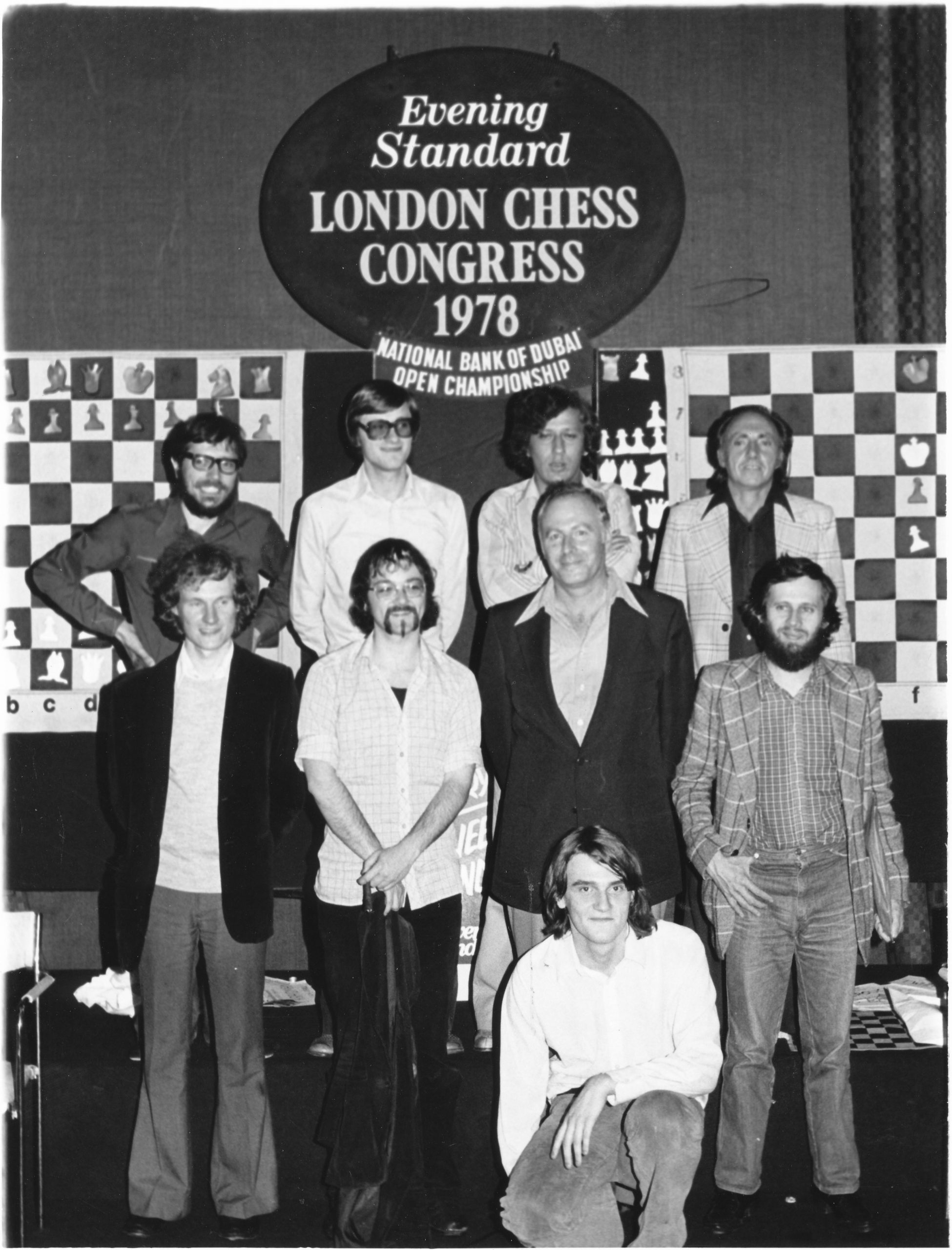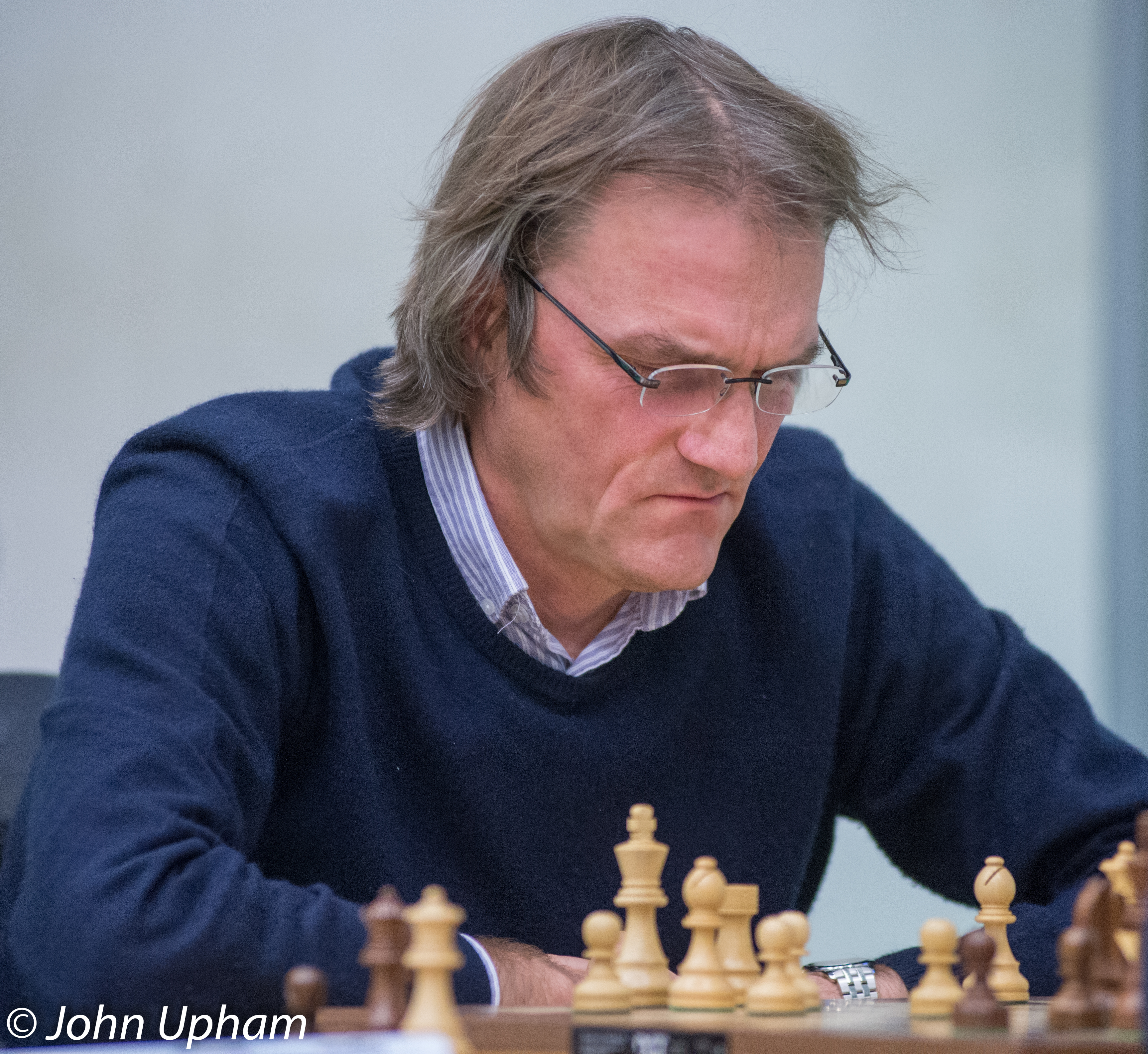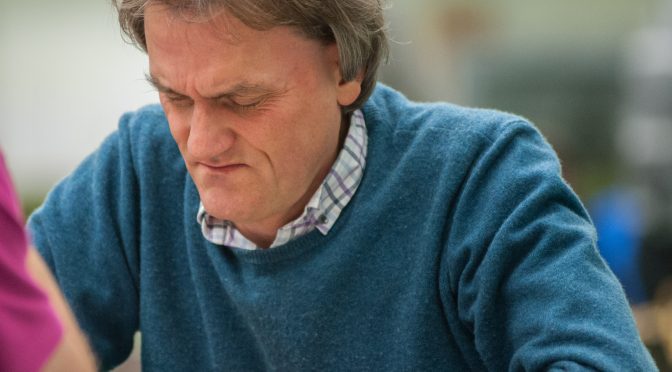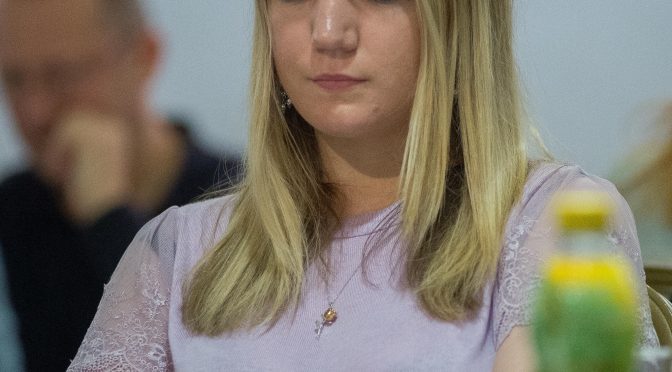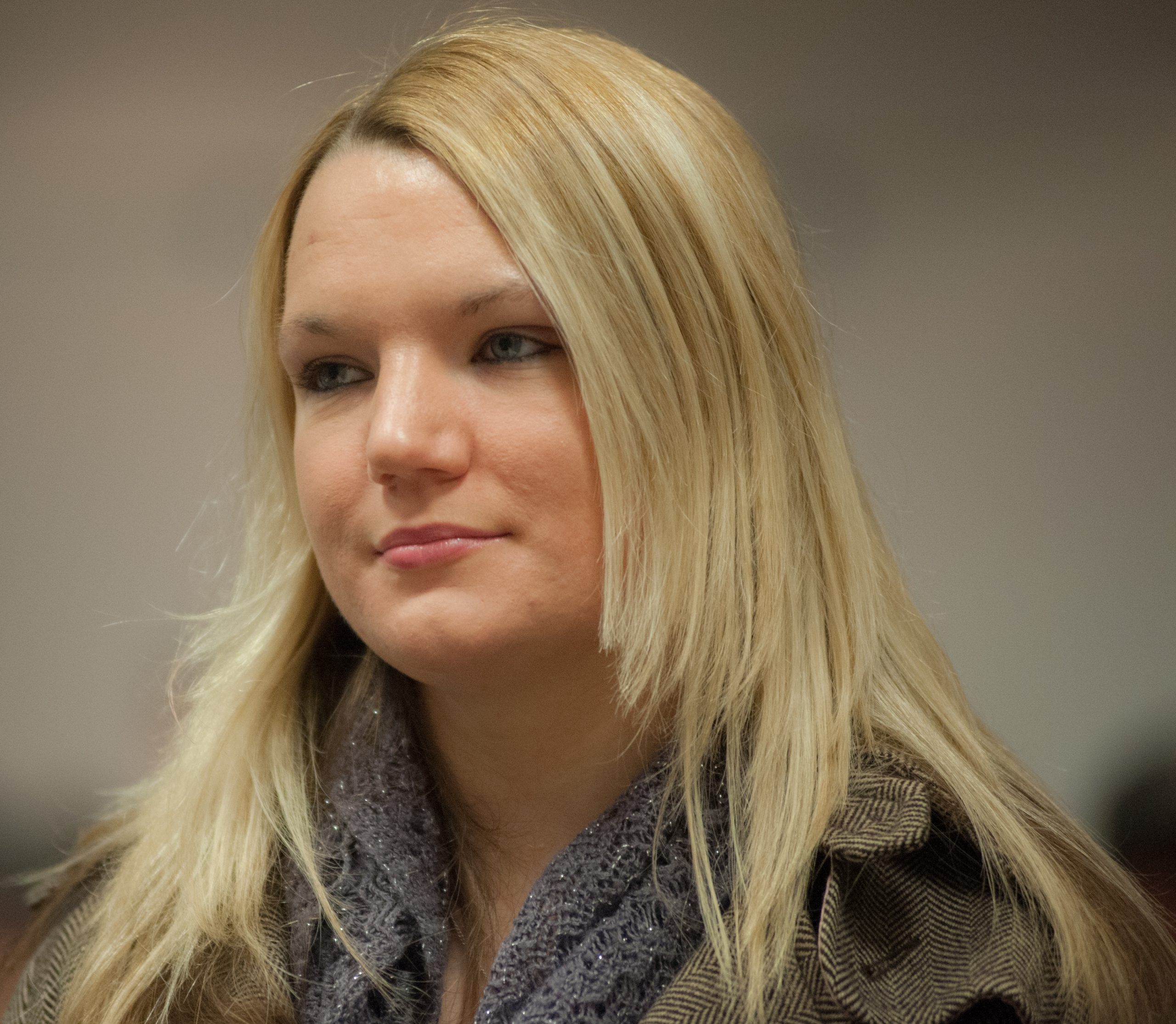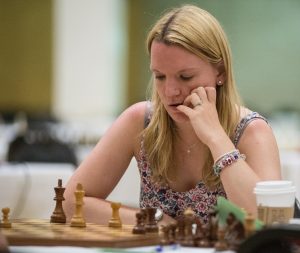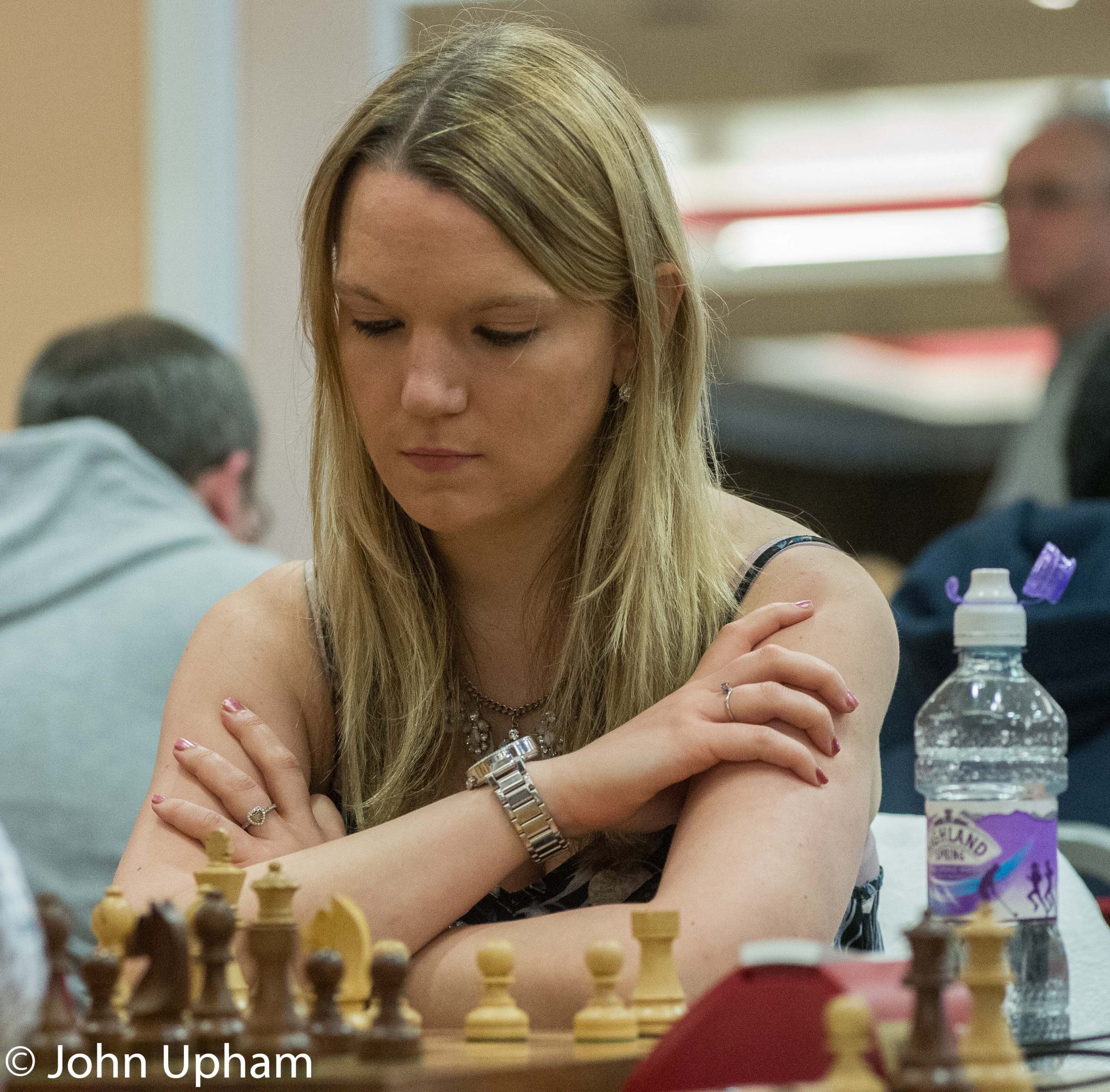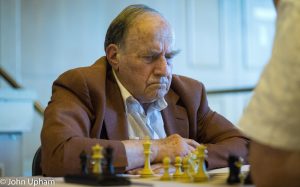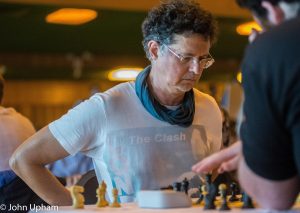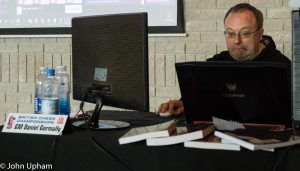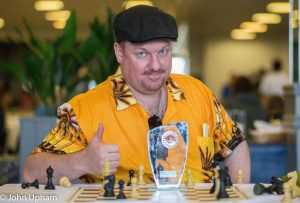We offer best wishes to IM Simon John Bradley Knott on his birthday
Simon was born on Sunday, October 19th 1958 in Lambeth, London to Simon Harold John Arthur Knott and Josephine Whowell.
Simon attended Trinity College, Cambridge.
He became a FIDE Master in 1990 and an International Master in 2001. According to Felice and Megabase 2020 his peak FIDE rating was 2401 in October 2002 at the age of 43.
Simon was Southern Counties (SCCU) champion in the 1995-96 and 2001-02 seasons.
Simon plays for Hertford and Barbican in the Four Nations Chess League.
As white Simon plays the Queen’s Gambit via a 1.Nf3 or 1.c4 move order. There are zero 1.e4 games!
As the second player he plays the French Winawer and the Grünfeld Defence.
